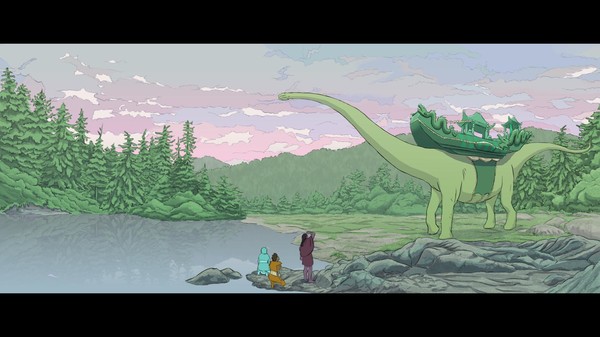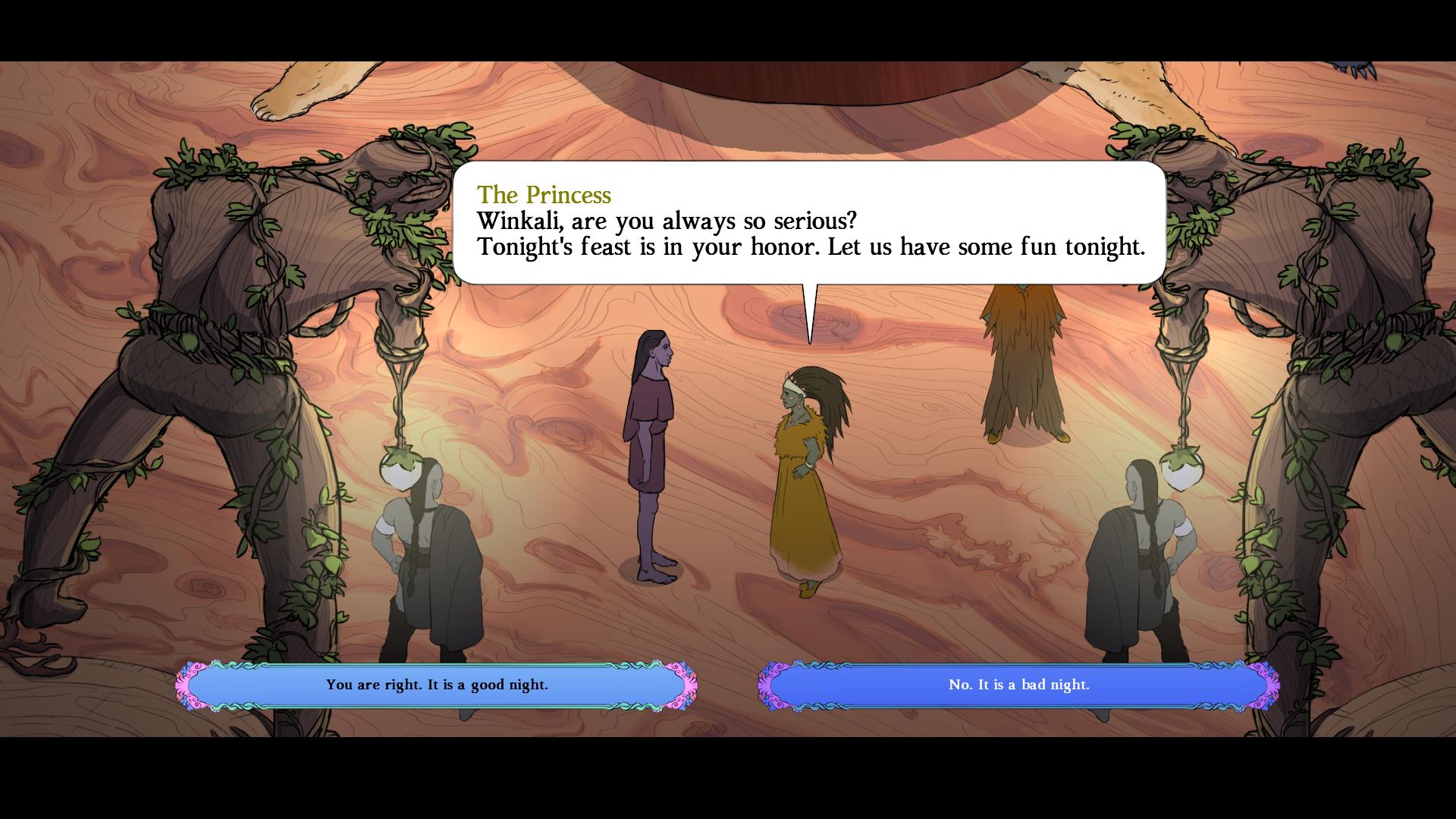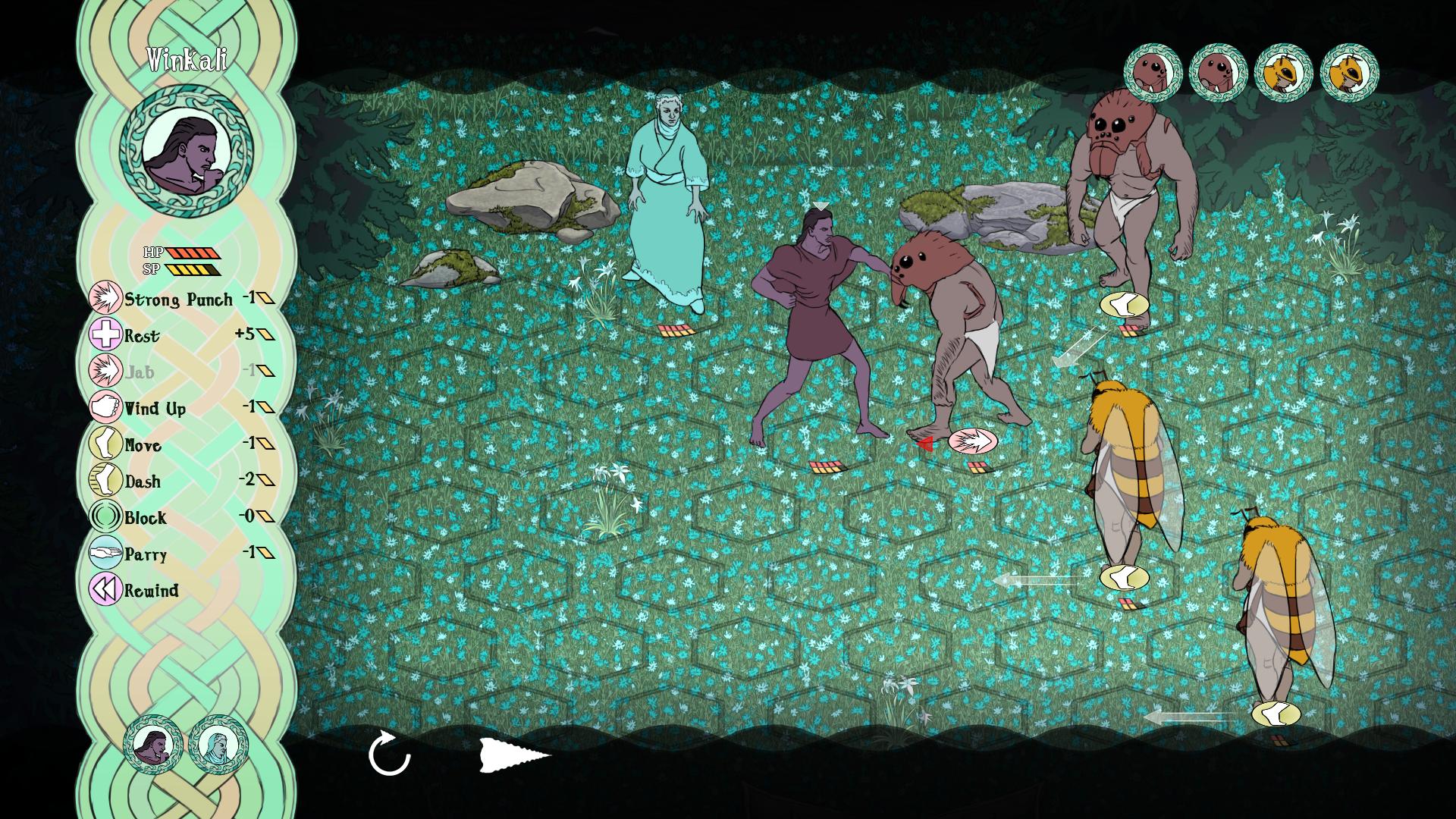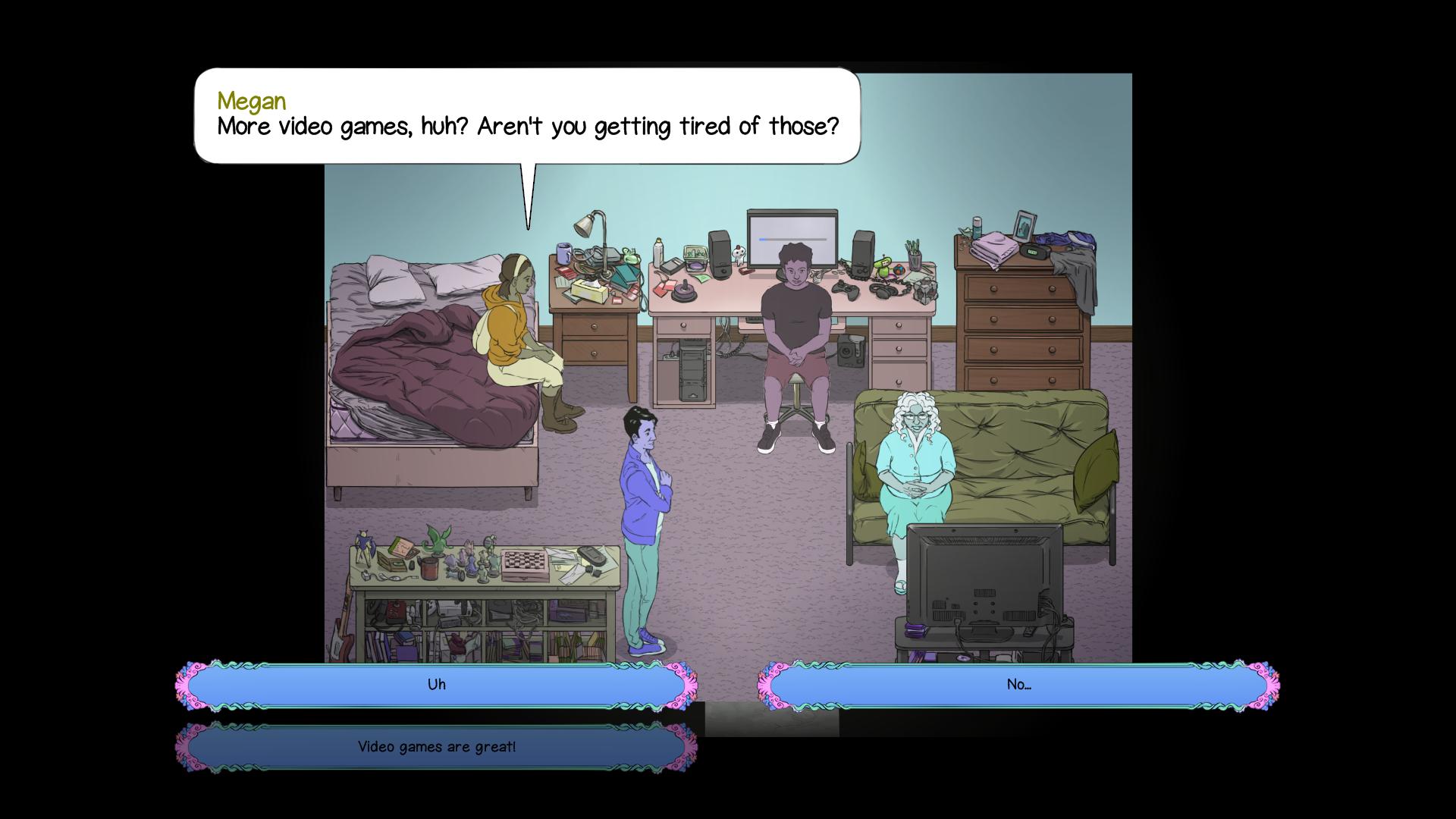Some call it the age of indies, where small and solo studios are creating games that give AAA titles a run for their money in entertainment value and meaning. Gameplay programmer Evan Rogers has sampled the best of both worlds.
Nearly four years in the making, Legendary Gary launched today on Steam. It’s Evan’s first solo project after working on notable titles like Naughty Dog’s The Last of Us and Giant Sparrow’s What Remains of Edith Finch. Evan took the time to speak with us about development, inspiration, and lessons learned along the way.
GameSkinny: You’ve been working on Legendary Gary for four years. What was the seed that started it all?
Evan Rogers: I’ve been working on it for three years, but I took a year off to work on What Remains of Edith Finch (WRoEF). I wanted to make a game by myself for a long time. In middle school, I would make games that could hardly be called games. Building my skills so I can make a game has been a long-term goal of mine for a while. I had a lot of different ideas before I arrived at the ideas currently in Legendary Gary (LG).
It all started right after I left Naughty Dog. I was there for two years working on The Last of Us (TLoU) as an AI programmer and some multiplayer stuff. My dad got brain cancer six months before we shipped, and he was rushed to surgery and came out with half his body paralyzed. My mom was taking care of him, and was using up all of her vacation time in the process. I was flying home once or twice a month from LA to NY to spend time with him because every time he went into surgery, we thought maybe he was going to die or be in a coma.
My parents’ options were to put him in a skilled nursing facility where they would take care of him or hire a full-time nurse that was just too expensive for them. My dad was terrified of going to a skilled nursing facility because one of the requirements for that was going into hospice. He wouldn’t get chemo, so there wouldn’t be any chance of survival. When TLoU was finished, I quit and moved back to NY to be my dad’s nurse for awhile so my mom could go back to work. Before that, I had this plan — I knew my plan was to leave Naughty Dog and set out on my own to make a game. I was planning on sticking around longer than I did — but my dad’s illness became my impetus to leave.
So then, as I’m home, I was part-time playing with a bunch of different ideas, and I prototyped a lot of ideas before I came to LG. I knew whatever I chose would take me a long time because there’s a tremendous amount of effort that goes into making a game. I knew this had to be an idea that I wouldn’t be sick of three years later. If this was going to be the only game I ever made, I wanted it to be one I’d be most proud of.
That being said, there were a lot of requirements. I wanted it to be a story that’s very personal to me and says what I want it to say. Also, something that had all of the aspects that I really enjoy in games. That’s why LG is a tactical strategy game, because I play chess and I really like strategy games. It also has a bizarre fantasy world that evokes the themes that I really liked from my childhood. Most of all, I like stories that try to create a whole world and invent ideas as opposed to working with the ideas that other genres have created.
The one piece of feedback I get from everyone’s who’s seen the trailer is, “That’s really weird.”
I’ve been making it so long it doesn’t seem that weird to me anymore, but I suppose it is pretty weird.

GS: So, when people describe the game as being weird, does that put you off, or is that the intention you were going for?
ER: Usually they combine it with something nice to say, so it doesn’t put me off too much. I wouldn’t say it was my goal to be weird for the sake of being weird. I wanted to create something new. One of the questions I’ve gotten a few times is “Is there a logic behind this, or is it just randomness?” There is a logic. There’s lore and history to the world, and there’s relationships between characters and reasons why things are the way they are.
Some aspects are inspired by The NeverEnding Story — a weird, mystical 80s fantasy — others by Myst and Riven; they do a fantastic job of inventing a world out of whole cloth. They borrow things you recognize but combine them in an interesting way.
GS: Not quite a one-man band, but close, as the music for the game was created by xXsickXx. How did you juggle everything?
ER: xXsickXx is a French musician who makes music on his PC by himself. I searched for a long time for a musician that I thought would fit the tone of the game and bring life to it, and I really loved his music. I thought it was perfect.
As far as juggling everything, I did it slowly. I’d work on one thing for a while and then switch to another in big chunks. One of the things that’s different about developing a game by yourself versus on a team is how things move. On a team, everything’s moving at once. The art, the code, the design are all being made concurrently. With me, I had to do them one at a time. I had to prioritize what I think is most important, make a plan for myself, and guess where the dependencies will be. I went round robin between design, code and art.
GS: What’s been your favorite part of making Legendary Gary?
ER: I feel most confident at programming, as that’s been my career outside of this. It’s the skill set that’s most developed. With some of the other things, it was the first time I was doing it for work instead of fun. Sometimes I felt like I was flailing around — trying things and them not working. Design is really hard. With coding, you know that you failed because it doesn’t work. With design, sometimes you don’t realize it doesn’t work until people don’t like it, and you still don’t really know why it doesn’t work. Design has to work with fuzzy answers to questions and fuzzy solutions. Luckily, I have a lot of designer friends who have been willing to help.
GS: What influenced Legendary Gary’s storyline and art direction?
ER: Growing up, I loved animation and comics. There’s something really personal about a hand-drawn art style. I intentionally wanted the game to be a little bit messy. For example, I hand drew every line instead of using the line tool because there’s something about hand-drawn lines that reminds you that a person made this. It didn’t come out of a machine or an army of people. A person did this to communicate something to you. It was that intimacy — that this is important enough to someone for them to go through the difficulty of hand drawing everything. They’re trying to communicate something to you that they think is important.
I had a lot of nostalgia for playing old JRPGS. You can still play them, but they didn’t affect me the same way as they did as a kid. As an adult, the concerns of my day-to-day life are so different, it’s hard to imagine myself as a JRPG character because everything is very dramatic in that space. I wanted the feeling I got as a kid playing old JRPGS like Final Fantasy or Dragon Warriors — roaming the land, forming friends, and fighting monsters — and somehow ground it with what matters to me now as an adult. I’m a huge Persona fan — it was a huge inspiration for making a game that blends fantasy and reality. This is how I came up with the dual reality premise.
Legendary Gary is a game about a guy playing a game, and the fantasy world is a mirror of his real life. The game kind of plays with the juxtaposition of fantasy. The things that matter to a hero in a fantasy world are ridiculous, but the things that matter to Gary in his real life are very mundane and not the stuff of fiction. The things that actually matter to us day-to-day are mundane, but they still matter. The story is about a guy who’s trying to be a better person. More responsible and more present for the people who care about him. More attentive to what they need from him. The things you’re choosing for him to do are small gestures, but to him in his life, they matter a lot.
GS: Do you think you working on The Last of Us and What Remains of Edith Finch impacted Legendary Gary in some ways?
ER:That’s a good question. I think if I psychoanalyzed myself, I could properly figure out how those things did influence the story of Legendary Gary.
They were both informative to me about how to make a video game, and I learned a lot from the people I worked with. Uncharted is one of my favorite game series, which is why I was so excited to work for Naughty Dog. But, Uncharted is another great example of a video game character whose reality is so over the top it’s hard to imagine yourself in any of the situations Nathan Drake finds himself in. What’s interesting about TLoU is that they grounded their fiction in a really powerful way, and a lot of it is about small gestures, showing humanity to the people around you, and dealing with feelings of being futile and powerless. Which I think are also themes in LG for sure.
WRoEF is also a great game that deals with subject matter you wouldn’t typically find in games or fiction. It’s about coming to terms with death and remembering the dead in your family. It explores the nature of storytelling about the dead and how we dramatize how our family members lived versus the reality of who they really were. I wrote a lot of LG’s story before WRoEF, but it operates in the same space of what we accept as true versus what is actually true — it’s often very different.
When I was working on WRoEF, I thought it was wonderful that there was a game about these concepts. I didn’t expect anyone outside the team would get it or appreciate it, though. I was blown away with how well it did critically, and how many people did get it and how big the reception was. That gave me a lot of enthusiasm going forward in LG — knowing that people can get games with that level of nuance.
GS: So, what’s next? Solo game dev for the foreseeable future, or will you join an existing team again? Perhaps both?
ER: I’m not going to jump back into solo dev again — at at least for a while. It was an interesting experience to do everything myself, and it allowed me to do all the things that would be hard to do on a team. I could make bold decisions independently.
You don’t have to convey to other people exactly what you want — especially if you’re not even sure what you want. I think that’s why some games today are kind of derivative. The easiest way to explain what you want is to refer to something else that we all know. I wanted to make unique choices.
The novelty of a game is really important when you’re making a small game. If you’re making a game that’s like another game, you have to outdo them, which is hard to do as a small team. Making something original — there’s value in that.
I wanted to try to do it all myself, however it’s an insane amount of work — it’s a huge financial risk. So I’m probably not going to do it again on my next thing. Not sure what I’ll do after LG, but probably not another solo project.
Legendary Gary is available on Steam for $14.99. You can keep up with Evan Rogers on Twitter at @evanmakesgames. Stay tuned to GameSkinny for more Legendary Gary news and our official review.









Published: Feb 20, 2018 01:40 pm